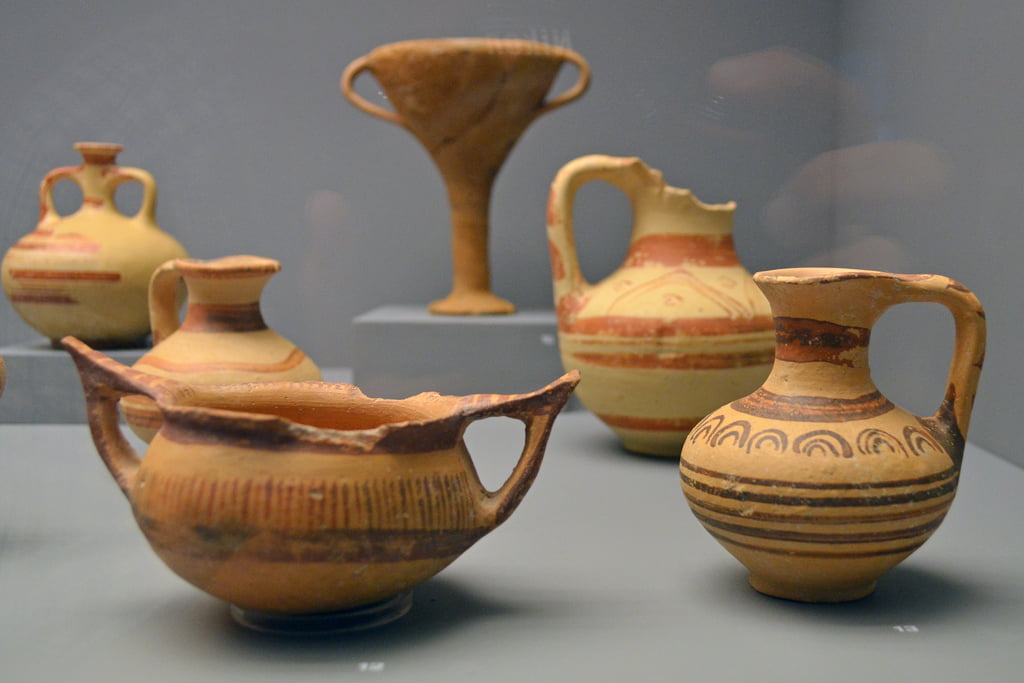Thousands of years ago, the region of modern-day Israel bore witness to thriving civilizations of the Bronze Age, written out in history books and showcased in museums. But 3,200 years ago, these civilizations collapsed, for reasons that remained a mystery, until now.
It turns out that the answer for this mystifying enigma found itself in pollen at the bottom of Israel’s lakes. In collaboration with the University of Bonn, researchers at Tel Aviv University discovered that the fall of the ancient southern Levant was actually brought upon by drought.
As we see climate change transforming our world today, so too did it radically alter life in the Bronze Age. “In a short period of time, the entire world of the Bronze Age crumbled,” explains Professor Israel Finkelstein, one of the leading researchers of the study.
Related articles
- Israeli Deciphers ‘Unsolvable’ WWI Encryption Code
- 200 Year Old Mystery Solved: Why Do Corals Pulsate?
An unusually high-resolution analysis of a sample of pollen grains taken from sediment beneath the Sea of Galilee and the western shore of the Dead Sea revealed the period of the climate crisis to have been between 1,250 and 1,100 BC. This finding was also backed by a chronology of radiocarbon dating. Using a unique combination of technological, archaeological and historical analysis, this study provided the fullest picture yet of an environmental disaster that happened thousands of years ago.
Answers from the depths of time
The researchers needed to extract approximately 60 feet (18 meters) worth of samples of gray muddy sediment from the center of the Sea of Galilee in northern Israel. In order to collect these samples, it was necessary to drill through 1,000 feet (304 meters) of water and into 65 feet (20 meters) of the lake bed. Drilling so deep allowed for the researchers to collect data spanning the past nine millennia. In the southern Judean Desert, at Wadi Zeelim (on the western margins of the Dead Sea), the team manually withdrew eight cores of sediment, each about 20 inches (51 cm) in length.
Cold and dry – a killer combo
Sign up for our free weekly newsletter
Subscribe“Pollen is the most enduring organic material in nature,” explains Doctor Dafna Langgut, one of the pollen researchers who carried out the actual work of sampling. “These particles tell us about the vegetation that grew in the vicinity of the lake in the past and therefore testify to the climatic conditions in the region.”
If solving several thousands of years-worth of an enigma wasn’t enough, the researchers also found results pointing to other factors which caused the decline of these civilizations. It was found that in the late Bronze Age, there was a decrease of Mediterranean trees such as oaks, pines and carobs, as well as a similar decline in the cultivation of olive trees, which the experts interpreted as the consequence of reoccurring periods of drought. It is likely that the droughts were also accompanied by cold spells, also causing famine and the movement of plunderers from north to south.
A regional problem
Coincidentally, recent pollen grain studies conducted in southeast Anatolia, Cyprus, along the northern coast of Syria and the Nile Delta came up with similar results, indicating that the crisis was regional. According to the researchers, the devastation was followed by a wet period of recovery and resettlement, eventually giving rise to the later kingdoms of biblical times, including ancient Israel and Judah.
The project began when, several years ago, Finkelstein received a grant from the European Research Council to conduct research aimed at reconstructing ancient Israel.
Alongside Finkelstein and Langgut of the Doctor Sonia and Maro Nadler Institute of Archeology at Tel Aviv University, the study was conducted by Professor Thomas LItt of the University of Bonn in Germany. The study has been published in “Tel Aviv: Journal of the Institute of Archeology of Tel Aviv University” and has also been reported in the New York Times.
Photo: Dandelion seeds in the morning sunlight blowing away across a fresh green background by Bigstock
Related posts

Resilient And Nutritious New Plant-Based Milk Aims To Make A Splash

Chocolate From Cultivated Cocoa Comes Without Environmental Toll

Plastic Fantastic: Startup Takes PVC Back To Its Crude Oil Roots





Facebook comments